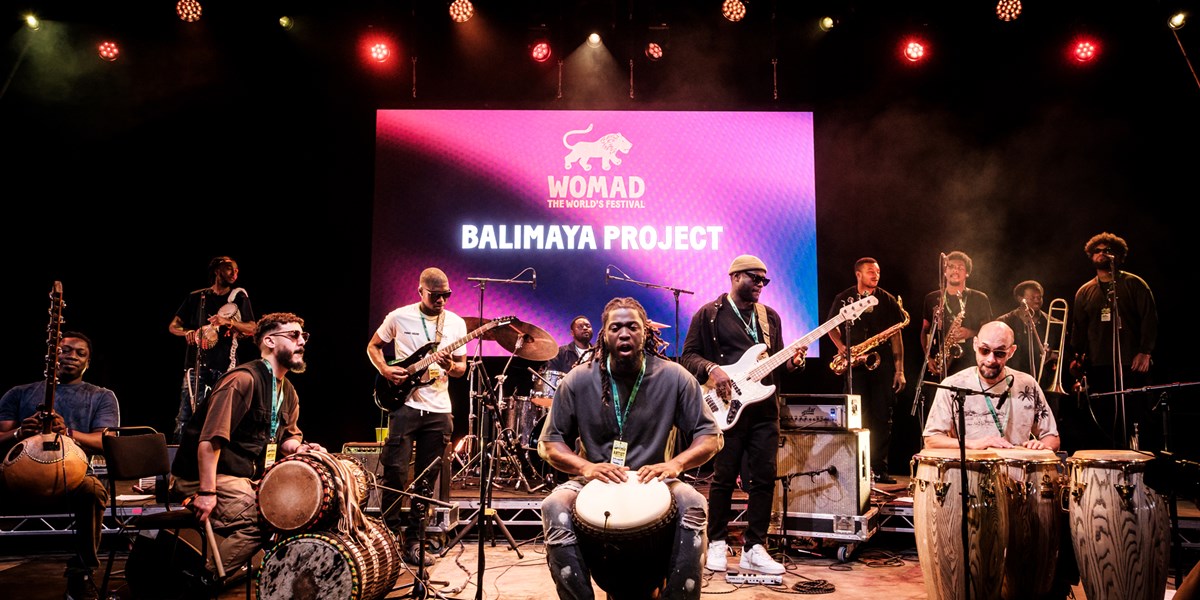Tuesday, March 5, 2024
Balimaya Project: “We’ve come so far in a short space of time”
By Erin Cobby
Balimaya Project’s latest album finds the group united, vulnerable and ready to take on the world. Erin Cobby speaks to bandleader Yahael Camara Onono about their evolution and the need to appreciate heritage

Balimaya Project at WOMAD (photo: Colin Miller)

Register now to continue reading

Thanks for visiting the Songlines website, your guide to an extraordinary world of music and culture. Sign up for a free account now to enjoy:
- Free access to 2 subscriber-only articles and album reviews every month
- Unlimited access to our news and awards pages
- Our regular email newsletters

